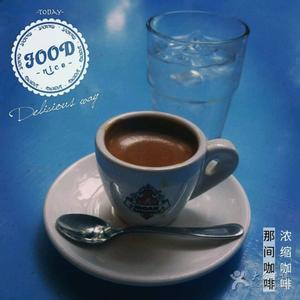Introduction to the Flavor and Taste characteristics of Burundian Coffee Manor
There are two major ethnic groups in Burundi, and only about 15 percent of the Tutsi have ruled the country since the 16th century, controlling the civilian population, which is mainly made up of Hutu, plus a very small number of indigenous Twa. This abnormal social structure occupied by ethnic minorities planted the evil seed of national instability and reached its peak in October 1993. Just four months after taking office, Melchior Ndadaye, Burundi's first ever Hutu head of state and the first democratically elected president, was assassinated by a mainly Tutsi-controlled military. The death of Ndadaya led to a comprehensive ethnic conflict in which at least 200000 of the population of both sides were slaughtered, of which 65000 Tutsi were slaughtered to fewer than 5000. The massacre lasted until 2002, when the Tutsi government finally signed an international armistice with four different Hutu rebels, while a ceasefire agreement with the last rebel group, the Forces nationales de Liberation (FNL) (French: Conseil National Pour la D é fense de la D é mocratie-Forces pour la D é mocratie, NCDD-FDD), was signed in Dar es Salaam, Tanzania, on September 7, 2006. Most of it is made up of the plateau on the east side of the East African Rift Valley, with an average elevation of 1600 meters above sea level, known as the "mountain country". According to the topography, Burundi can be divided into three regions: the western plain, along the Ruzizi River, the Rift Albrtine plain, at 774 to 1000 m above sea level; the central and western mountains, with an average elevation of 1700 m, with the highest peak at Heha in the south-east of Bujumbura, 2670 m above sea level; and the east-central plateau, 1000 to 2000 m above sea level.
Hydrology
Lake Tanganyika is located on the southwest coast of Burundi, covering an area of 32900 square kilometers, with an average water depth of 700m and a maximum depth of 1455 meters. it is the second largest deepwater lake in the world after Lake Baikal in Russia.
Climate
Burundi has a subtropical and tropical climate. The lowlands of Lake Tanganyika, the western river valleys and the eastern part have a savanna climate, while the central and western regions have a tropical mountain climate.
The chaos of Burundian coffee has been going on for a long time, with a large number of old and new raw beans mixed together, making this coffee unsuitable for grading. This coffee is rough but mild, and has characteristics similar to Kenyan coffee. The flavor is sweet and fruity, with a slightly spicy finish.
Dry aroma (1-5): not applicable
Wet aroma (1-5): not applicable
Acidity (brightness) (1-10): not applicable
Taste (layered) (1-10): not applicable
Taste (alcohol thickness) (1-5): not applicable
Aftertaste (residue) (1-10): not applicable
Balance (1-5): not applicable
Base score (50): not applicable
Total score (maximum 100): not applicable
Strength / main attributes: strong / sweet, fruity, spicy aftertaste Londi coffee bears a striking resemblance to neighboring Rwanda, where coffee from the two countries is often confused. Burundian coffee is mainly grown in bourbon, with traditional wet processing of coffee cherries. Its boutique coffee is characterized by elegant sweetness and bright citrus aromas.
Burundi is a small landlocked country located at the junction of eastern and central Africa, across the Nile and Congo basins, dominated by hills and mountains, with excellent coffee-growing elevations. The history of coffee cultivation in Burundi is not long, its coffee planting industry is carried out entirely in the form of small family farms, there is a great difference in quality, and years of war and social unrest have made its coffee planting industry very chaotic. But I have to admit that it has the potential to produce high-quality coffee.

Important Notice :
前街咖啡 FrontStreet Coffee has moved to new addredd:
FrontStreet Coffee Address: 315,Donghua East Road,GuangZhou
Tel:020 38364473
- Prev

The unique flavor of Ugandan coffee taste introduction to the characteristics of fine coffee in manor area
The people of all parts of Uganda resisted the British aggression tenaciously. In 1893, Britain sent troops to occupy the Kingdom of Bunioro, and King Kabarega led some of the people to wage guerrilla warfare for six years. In 1897, King Mwaanga of Buganda raised his army against Britain and later joined Kabarega in the Rango region. In April 1899, the two kings were captured and the uprising failed. To make it easier to rule
- Next

Introduction to the characteristics of Puerto Rican Coffee Flavor Manor with Pure, aromatic and heavy granule
In 1898, the Spanish-American War broke out and Spain was defeated. According to the Treaty of Paris, Puerto Rico was ceded to the United States. The administrative jurisdiction of the United States over Puerto Rico first took the form of a military junta. During its two years of governance of the island, the junta established schools, roads, railways, hospitals and health facilities. In 1900, the United States Congress established civilian control over the island. The Governor, the Cabinet and
Related
- Detailed explanation of Jadeite planting Land in Panamanian Jadeite Manor introduction to the grading system of Jadeite competitive bidding, Red bid, Green bid and Rose Summer
- Story of Coffee planting in Brenka region of Costa Rica Stonehenge Manor anaerobic heavy honey treatment of flavor mouth
- What's on the barrel of Blue Mountain Coffee beans?
- Can American coffee also pull flowers? How to use hot American style to pull out a good-looking pattern?
- Can you make a cold extract with coffee beans? What is the right proportion for cold-extracted coffee formula?
- Indonesian PWN Gold Mandrine Coffee Origin Features Flavor How to Chong? Mandolin coffee is American.
- A brief introduction to the flavor characteristics of Brazilian yellow bourbon coffee beans
- What is the effect of different water quality on the flavor of cold-extracted coffee? What kind of water is best for brewing coffee?
- Why do you think of Rose Summer whenever you mention Panamanian coffee?
- Introduction to the characteristics of authentic blue mountain coffee bean producing areas? What is the CIB Coffee Authority in Jamaica?

